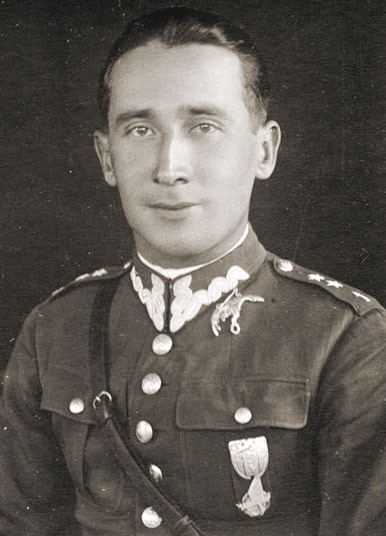Background
Roman Czerniawski was born on February 6, 1910 in Poland.


Roman Czerniawski was born on February 6, 1910 in Poland.
Czerniawski graduated in the late 1930s from the Wyższa Szkoła Wojenna (WSWoj), a military academy at Warsaw.
As a Polish AF officer with cryptanalytical training he escaped to Paris in 1939 and working there with Polish intelligence. He went underground when France fell and organized a spy ring. But the Polish captain did not have a radio of sufficient power until the SOE sent him one. The first Interallie transmission to London was on 1 Jan 1941 from an apartment near the Trocadero. His cipher clerk and broadcaster was the alluring Mathilde “the Cat” Carre.
Interallie grew to 120 agents and four transmitters, becoming so successful that Czerniawski (code name “Valentin”) received Poland’s highest citation for gallantry when he visited London in Nov 41 for an SIS-Polish intelligence conference. But disaster struck while he was away. The Germans arrested and “turned” Raoul Kiffer, Interallie chief in Cherbourg. He betrayed 21 helpers and revealed Valentin’s hideouts. Sgt Bleicher (“Col Henri”) caught Czerniawski asleep in his apartment at St Germain en Laye the morning of 17 Nov 1941. found incriminating documents, and bagged the Cat later that day in the net’s headquarters in the Rue Leandre. (Some say the Cat betrayed Czemiawski in a fit of female jealousy over another women.)
The Cat and Kiffer helped Bleicher arrest almost 100 Interallie agents. Abwehr operators took over the Interallie radio network without arousing suspicions in London. The Abwehr offered to give POW status to the captured agents if Czerniawski would spy for them. Valentin demanded full sovereignty for Poland as part of the deal, something the Abwehr obviously could not promise. But on 22 June 1940, Valentin came to realize that Stalin was a greater enemy of Poland than Hitler, so he accepted the German proposal to “work for peace.” Renamed “Armand” he was taken from Fresnes on 14 July 1942 (Bastille Day) by Bleicher and Kiffer for an alleged interrogation in Paris and allowed to escape. Met by Bleicher in Lyons, Armand made his way over a British escape line to Madrid and reached London in Jan 1943. En route he made contact with Abwehr and MI6 handlers. Taken in by the XX (“Double Cross”) Committee as “Brutus,” he became one of the war’s most effective double agents.
